#family roles
Text
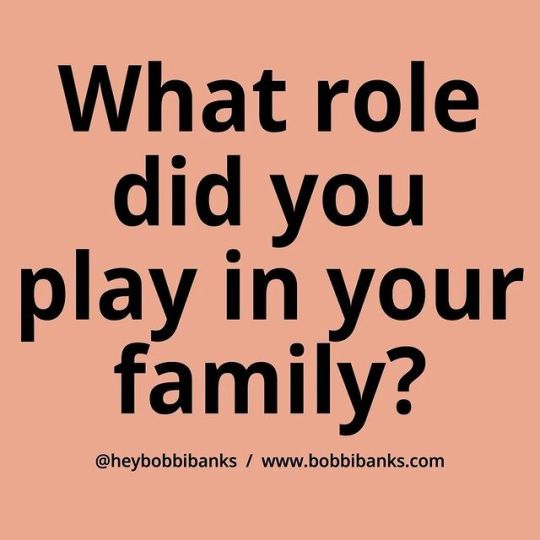


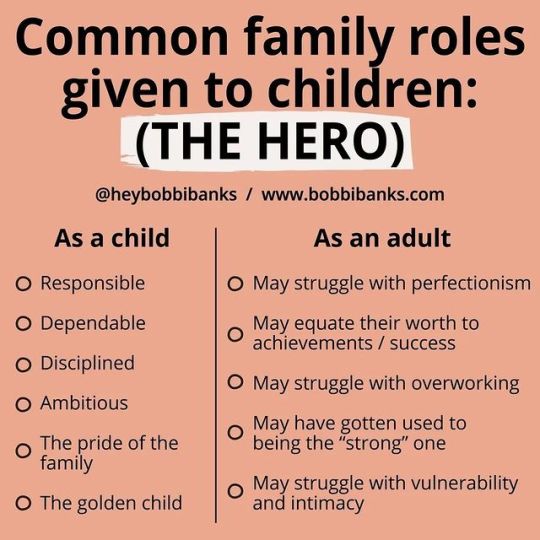
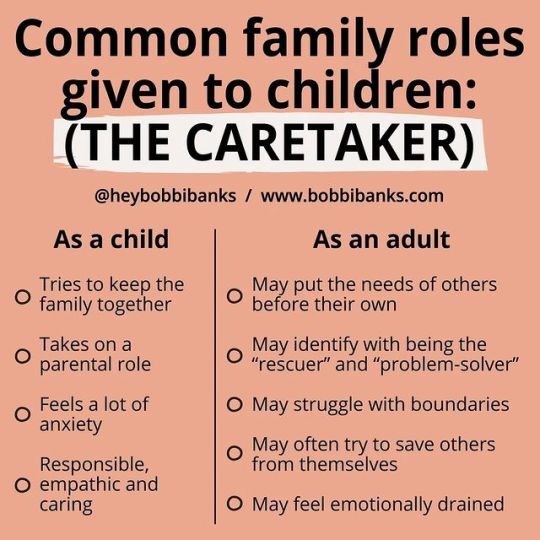
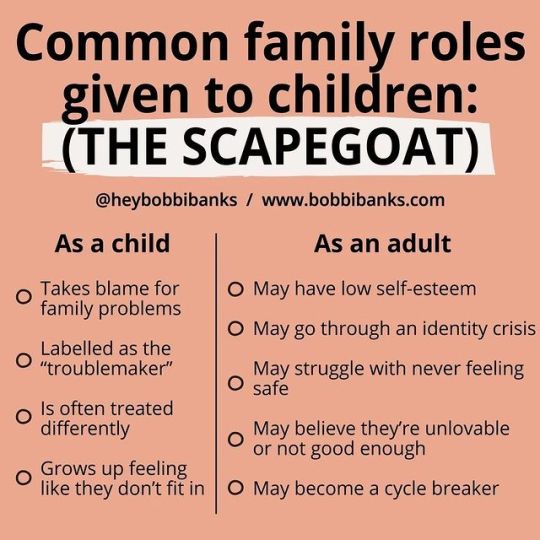
Oddly enough I can associate with multiple of those roles mentioned above. As a child and an adult now, I can associate between the lost child and the scapegoat roles. I have always wondered what my identity really was. Closely following everything my parents wanted, assuming that following the formula they gave I felt that I would be accepted and loved. But ofcourse that really never happened. All that did was make me lose myself. I feel like I don't know who I am anymore or what I want. Living for a long time to please my family members, in search of validation and belonging, has actually left me more lost than anything else. Life is confusing.
#absurd#mentalhealthawareness#mentalhealth#mentally exhausted#mental health#mental abuse#mental wellbeing#toxic#toxic family#toxicity#toxic people#dysfunctional family#emotionally drained#emotional abuse#emotional trauma#emotional wounds#family dynamics#family roles#scapegoat#family-trauma
299 notes
·
View notes
Text
how the six family roles in an addictive household are shown in shameless, season 1
so i said i’d make this post a while ago and guess what? i lied. oops. anyways i finally did it so here you guys go!
also, i’m only doing season 1 here because season 1 is the season where the roles are the most clear. after that, some siblings share roles or change roles. in many, many ways, season 1 is much simpler, as we all know.
i most of my information from this article, and i copy and pasted some of it.
 the addict, is frank. you could also say that it’s monica, however she left the family/household years prior to the start of the show. as the consequences of addiction begin to form, the addicted family member will often portray negative behaviors to others in the family including lying, manipulating, and pointing fingers of blame; frank does all of this in season 1 constantly. he lies about where aunt ginger is, manipulates his family by assuring them that he is sober, and he puts the blame on other members of his family, such as ian or monica. half of the family views him as a nuisance, and the other half views him as beloved.
the enabler, is debbie. enabler’s don’t set boundaries and excuse a lot of the addict’s behavior. for debbie, it’s not that she doesn’t understand frank’s addiction or how shitty frank is, she does (1x08), but she chooses to pretend like things are alright. she loves her dad a lot, and she wants to pretend like everything is okay. she wants to pretend like things won’t go back to the way they are, even though she knows they will. we see her caring for her dad, waking up in the middle of the night to check on him and bring him a pillow, asking him if he’s okay, she cares. nobody else really cares that much. we see her become more of an enabler in season 2/3 especially, but again, only season 1 here.
the scapegoat, is lip. many people would like to argue that it’s carl (or debbie or ian) and maybe later on, but not here. the scapegoat of the family often gets blamed for the family’s issues, usually the scapegoat is the second oldest (!!) or middle child. in many cases, this person feels their purpose is to provide their family members with an outlet for blame. so, they can take on a parent’s and other sibling’s blame in order to protect them from feeling these emotions themselves. commonly, the scapegoat of the family will eventually be unable to manage their anger and act out in avoidance behaviors, often leaving town and not returning. so, yeah, this can be season 3/4 ian, or season 6 debbie or carl, but overall, this is lip in season 1. however, lip doesn’t often take the blame. fiona does. he and fiona share the hero and scapegoat role, and eventually share the addict role, but overall the scapegoat is lip. he acts out, purposefully gets into trouble, and is blamed. does he accept the blame? no, but he gets it. and he goes off to do his own shit often, when shit hits the fan he either fixes the problem or just leaves. lip can’t manage his anger. ever. it’s something he never learns how to do from season’s 1 through 11. he uses avoidance behaviors (such as drinking himself sick) and anger to cope with his family’s hardships.
the hero, is fiona. fiona is basically the definition of the hero, which is: the hero of the family is the one who is most controlling and often a perfectionist. by keeping up with personal goals, they feel they can provide their family with the illusion that everything will be okay. normally, the hero of the family is the first child, as they are the most likely to have a type a personality and feel as though they are a leader to their siblings. because of the position they put themselves in as a leader, they may experience extreme amounts of stress. and, become unable to manage their anxiety. that all screams fiona gallagher. she works multiple jobs, attempts to control everyone and everything in her life, and provides for her five siblings. she’s the firstborn child, and the youngest child literally refers to her as his mother on multiple occasions. she dropped out of high school for her siblings, and basically risked everything for them. they are her life.
the mascot, is carl. season 1 carl is sort of hard to characterize because he’s almost never a very serious character, hell, throughout the entire show he cries like three times. but that unseriousness kind of makes him fit into the role of the mascot. the mascot of a family is the person who may utilize humor to try to resolve tension during family arguments or drama. this may be due to the fact that they require approval from those who surround them due to their fragility. most commonly, the mascot of the family is the youngest sibling. basically, they use humor as a defence mechanism in order to not have to experience the negative emotions which may be brought about by addiction in the family. carl wasn’t the youngest sibling, but he was for about seven years, so it kind of counts. at least at this point it does. carl isn’t as aware as debbie is when it comes to the issues in the family, (1x08), and in the first (or second technically) scene, debbie tells carl he’s almost nine and needs to begin pulling his weight. he doesn’t take on the same understanding or responsibility as the rest of the siblings do, but there is a possibility that he understands and masks it by acting clueless. or, he simply is clueless. who knows. either way, if anyone’s going to be the mascot, it has to be carl.
the lost child, is ian. the lost child is a sibling who may not be as involved in family relationships as the others. this is due to the fact that they may not have shared as much family attention as the other siblings. typically, they’re the youngest or middle child. and, characteristically showcase behaviors like isolation and the inability to maintain lasting relationships as a result of addiction in the family. so, ian obviously does end up maintaining a lasting relationship, blah blah blah, but he literally doesn’t until like the last season so THAT DOESN’T MATTER. anyways. for like the entirety of ian’s adolescent years on the show (seasons 1-4), he is forgotten. he’s the stereotypical middle child, the least favorite, and forgotten. fiona never has to worry about him, monica is nowhere to be seen (but i made a post here that talks about their relationship that you should totally read), and frank hits him and simply doesn’t really give two fucks about him. ian isolates himself from the rest of his family, and rarely is actually at the house. he’s often with kash (a man in his fourties), or mickey or just doing his own thing. he becomes even more of the lost child later on (and eventually morphs into the scapegoat) but that’s irrelevant. ian’s hiding a big secret, ian is rarely home, the most attention ian probably ever gets out of frank is just getting hit or insulted. ian’s forgotten.
liam isn’t on here because he was so little in season 1. but much later on, he takes on the role of the lost child. if you want to know more about this/how the gallagher’s were based on actual people rather than just roles, read this article. i highly recommend it.
#shameless#shameless meta#character analysis#shameless analysis#meta post#meta#please read this it took forever lol#shameless us#frank gallagher#fiona gallagher#lip gallagher#ian gallagher#debbie gallagher#carl gallagher#liam gallagher shameless#family roles#alcoholic family roles#the addict#the enabler#the scapegoat#the hero#the mascot#the lost child#tw: alcholism#monica gallagher#shameless rant#shameless season 1#season 1#1x01#1x08
156 notes
·
View notes
Text

Baa, baa, Black Sheep
56 notes
·
View notes
Text
Made this at 1 am, it took way longer than necessary.
It got a lot of the art from Pinterest so I can’t really credit the artists but if you recognize your art it’s amazing and thank you!!!!
#TMA#angst#I’m kinda proud of this#the magnus archives#I miss themmmmm#aaaaaaaaaaaa#family roles#CapCut😭😭
6 notes
·
View notes
Text
I think that a lot of the conversation on dysfunctional family roles focuses a bit too much on the scapegoat and ignores the nuances of the hero or golden child.
it is especially frustrating when one has filled both roles in their life and feels like they cannot talk about the times they were the golden child because of the lack of critical thinking surrounding these child roles
#dysfunctional family#dysfunctional family roles#family roles#scapegoat#golden child#hero child#mental health#abuse#abusive family dynamics#family dynamics
19 notes
·
View notes
Text
Just re-watched that scene in Dark Side of the Moon where Dean comforts Mary after her angry phone call with John and remembered that people in families always play roles even without the trauma or grief of death.
Dean didn't just step up to fill the mother role after Mary died, he was already becoming the mediator and fixer of the family at 4 freaking years old. The one whose job it was to keep the family together and happy. Watching Sam realize that from an adult perspective is powerful and why I love the family work done in season 5.
#can relate#i am deancoded after all#winchester family dynamics#family systems#family roles#5x16 dark side of the moon#supernatural season 5
13 notes
·
View notes
Quote
We recreate a variety of different family relationships in the marriage in order to try to solve some of the problem areas of our past. And we don’t stop with marriage; our children too are soon involved in our incessant attempt to recreate our family of origin.
But because the mother-child relationship is the primary model for intimacy in our lives, it forms the basis for the deepest levels of intimacy in the marriage. It is this early relationship that appears to set the tone in our lives for the profound issues like the degree to which we trust and care about the Other and trust and care about Self and the degree to which we distinguish between Self and Other as separate, yet related entities.
Augustus Y. Napier Ph. D. with Carl Whitaker, M.D., The Family Crucible: The Intense Experience of Family Therapy
#the family crucible#Family therapy#marriage counseling#marriage#family of origin#roles#family roles#mother-child relationship#parent-child relationship#self#other#intimacy#trust#care
5 notes
·
View notes
Text
Mexico's “head of household” stat is sexist and outdated, hiding women's contributions and skewing policies. Let's ditch it and count all family roles, not just the sombrero-wearing ones.
#Mexico#head of household#sexist#sexist and outdated#women's contributions#skewing policies#family roles
0 notes
Text
I has been described as Trad Wife today
While my big beautiful wife has been described as Yes Chad.
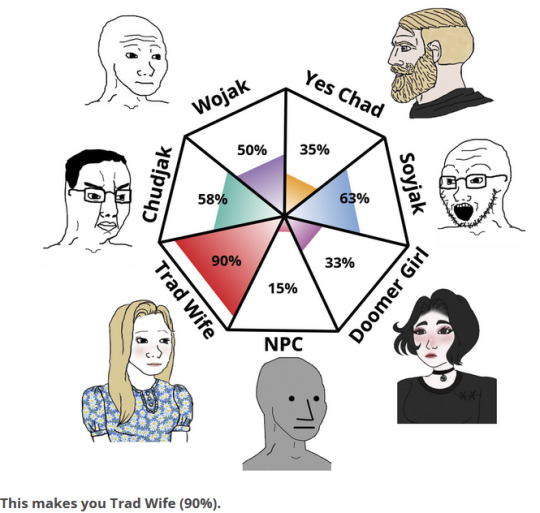
That was quite surprising. Well... considering i cook in our family to reduce chores burden on my wife, it can have rational seed.
With all this my desire to get fat, some insecurities about my body hair I have lately, it have some sense.
We both don't want to have children, so from this point of view we fall out any categories, but anyway the match of our sorta inversed family roles and that being outside of categories - it is quite interesting results anyway.
0 notes
Text
Nex Benedict's death wasn't just for being transgender, it was for being native too. 2 Spirits are revered in many native cultures and it is a native-specific identity. This wasn't just a hate crime against trans & NB individuals, this was also a hate crime against Natives of Turtle Island.
You cannot separate Nex's trans identity from their native identity - this is a case of MMIWG2S (Missing and Murdered Indigenous Women, Girls, and 2 Spirits).
Native children being killed at school is nothing new, so it's equally important to talk about Nex's native identity and being intersectional, this is a devastating tragedy for indigenous people, the queer community & especially those of us who are both indigenous and queer.
May Nex rest in peace 🪶
#too many people are ignoring their indigenous identity and how that plays a role in what happened#because 2 spirit is a trans AND indigenous identity - you cannot separate the two#and it is a disservice to Nex and all other 2 spirit to do so#as a queer indigenous woman my heart aches for Nex and their family#we as indigenous people have lost too many children to violence at schools#and we as queer people have lost too many to the rise of transphobia and TERFs and their attitudes#nex benedict#mmiwg2s#2 spirit#indigenous#queer#indigenous & queer#intersectionality#racism#transphobia
8K notes
·
View notes
Text
In a family this crowded, a girl had to carve out her own niche. Even when they were children, Margaret had been responsible—therefore, Philippa kept her head in the clouds. Next came Georgie, the sweet one. Eliza had to be the spice. That was the way of things with sisters, wasn’t it?
—Tessa Dare/The Scandalous, Dissolute, No-Good Mr. Wright
0 notes
Text
“omg gem is so mom coded” “pearl is so sibling coded” ok well i think gem and pearl are this
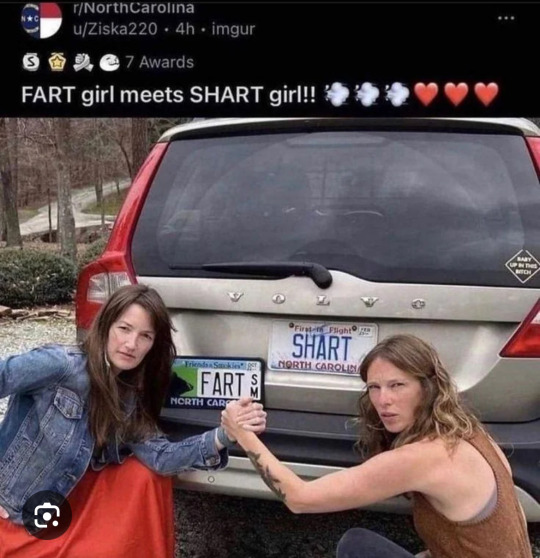
#no hate to folks who make family hcs its just been a common theme for some people to like#exclusively put female ccs into mother/sister roles and it can come off a bit misogynistic ykneow#anyway funny shitpost
4K notes
·
View notes
Text
youtube
I think that it's important for y'all to see this
0 notes
Text
Watch "Episode 34 - The Scapegoat" on YouTube
youtube
This Jungian Life: The Scapegoat
#jungian psychology#self help#scapegoat#scapegoating#family roles#dysfunctional family#dysfunctional family roles#Youtube
0 notes
Text
the reason critical role is so good is because every campaign features at least one cast member creating a character that they intend to be doomed by the narrative and matt and the rest of the cast going don’t be an idiot, Our Love Will Undoom Them. like in the explanation of percy’s final playlist, taliesin wrote, “Cheers to a happy ending for a character intended by his creator to be karmically irredeemable. May we all be so fortunate.” and just, Yeah.
#this is particularly about like. percy vax yasha caleb beau fcg imogen#also they’re jokes but like. tary as doomed as meant to just be a fucky joke and they were like no actually he’s my best friend#and bertrand being the Epitome of cast fuckery and . they’re the bell’s hells#the undooming nature of a found family’s love cannot be beat .#critical role#the mighty nein#vox machina#bell’s hells#percival de rolo#percy de rolo#taliesin jaffe#matthew mercer#matt mercer
11K notes
·
View notes
Text
“SEEK INTIMACY WITH SELF, THEN OTHERS, THERAPIST SAYS - Deseret News”
Most people equate intimacy with sex, but that's not what intimacy is, says Terry Kellogg. Intimacy is about feeling safe and spontaneous in a relationship, and most people, says Kellogg, never do.
That's because you can't be intimate with another person until you first become intimate with yourself, and you can't do that, he says, until you figure out who you are. But a lot of people, according to Kellogg, are too busy getting their identity from other people.They are, to use the current buzzword, co-dependent.
Kellogg, a Minneapolis therapist, is an expert on co-dependency, as well as those two other current buzzwords - dysfunctional and recovery - concepts that have received a good deal of attention lately, much of it inspired by the TV shows and books of John Bradshaw. Before he became the nation's new psychological guru, presenting workshops around the country, Bradshaw took workshops from Kellogg.
The low-key Kellogg, as soft-spoken as Bradshaw is flamboyant, will be in Salt Lake City on Friday, Dec. 7, and Saturday, Dec. 8, to present a lecture and workshop sponsored by the Say Yes Foundation and CPC Olympus View Hospital.
The Dec. 7 lecture, "Inside Out: Building and Maintaining Intimacy From Within," begins at 7:30 p.m. at Churchill Jr. High School, 3450 East Oakview. Tickets are $10. The Dec. 8 workshop, "Addictive Relationships," runs from 9 a.m. to 5 p.m. at CPC Olympus View Hospital, 1450 E. 4500 South. Tickets are $55.
"Most people work hard on relationships," notes Kellogg. "But they don't work hard on their relationship with themselves." You can't have intimate relationships with other people until you develop your own identity, he says.
"What co-dependency is really about is lack of self."
Most people are pretty adept at having friendships. It's when they try to establish a primary relationship, based on intimacy, that "the pathology" shows, Kellogg says. That's when a person might start acting in a controlling way, for example.
"To one degree or another most people are co-dependent or have co-dependent traits," he says. Those traits might include a penchant for worrying too much or working too much, as well as more self-destructive behaviors such as addictions or a tendency to be in hazardous relationships.
People get into relationships that aren't healthy as a way of avoiding their own unhealthiness, he says.
"Most of our relationship problems," he adds, "are a reaction to or a re-enactment of unresolved childhood issues," many resulting from dysfunctional families. Nine out of 10 families, he estimates, are dysfunctional.
People who never saw intimacy in their own families, and who were not "cherished for their uniqueness," have a hard time establishing intimacy with others, says Kellogg. ▫️
"What co-dependency is really about is lack of self."
#codependent#codependency#relationship#dysfunctional family#childhood#family of origin#unresolved#addiction#intimacy#family roles#family#attachment issues#recovery#self help
0 notes